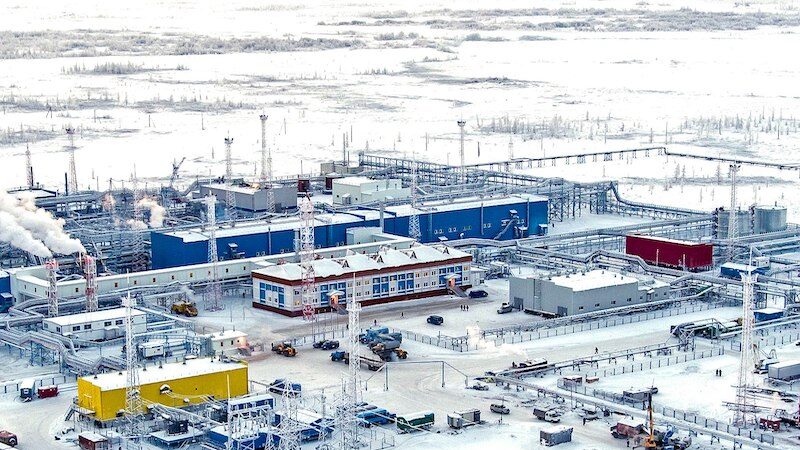Major oil and gas producers hit back at World Bank reforms that aim to channel more money into clean energy
Russia, Saudi Arabia and other Gulf states have urged the World Bank to keep funding fossil fuel as a way to guarantee energy access across the world, as the lender pursues green reforms.
During a meeting of the bank’s steering committee in Marrakech, Morocco, they voiced opposition to reforms which are expected to channel more money into clean energy projects.
Mohammed Aljadaan, the Saudi finance minister, said “hydrocarbons will continue to play an important role in balancing the energy mix for the foreseeable future”, calling on the World Bank to reflect “these realities” in its financing.
He added that the lender should prioritise supporting universal electricity access, which requires “tapping all energy sources”.
His calls were echoed by Bahrain’s finance minister, Sheikh Salman Al Khalifa, who intervened at the meeting on behalf of a group of countries including neighbouring United Arab Emirates and Qatar.
“All sources of energy are essential and needed for economic growth and development,” he said before going on to make the case for the “indispensable role” of fossil gas as a source of “reliable and affordable” energy during the transition process.
Gulf states are among the world’s biggest producers and exporters of fossil fuels, which contribute to the vast majority of their national incomes.
Carbon capture pitch
Both Aljadaan and Al Khalifa also urged the World Bank to boost investment in carbon capture and storage (CCS) to allow for “a wide and reliable energy mix”. Saudi Arabia is a major proponent of CCS and has a history of promoting it in international summits, including talks over the IPCC scientific reports and UN climate talks.
Countries that produce or rely on fossil fuels particularly advocate the use CCS to trap their emissions, rather than ending the use of such fuels completely. However, the technology remains expensive and unproven at large scale.
According to the IPCC’s scientists, stopping a tonne of carbon dioxide with CCS costs between $50 and $200. Replacing fossil fuels with renewables usually saves money.
The International Energy Agency recently downgraded the role of the techno-fix in its net zero scenario, saying the history of CCS “has largely been one of unmet expectations”, marked by slow progress and flat deployment.
Green agenda attacked
Another voice in favour of fossil fuels around the World Bank committee table was that of Alexey Overchuk, Russia’s deputy prime minister. In a not-so-thinly veiled attack on the lender’s new agenda, he hit out at “unbalanced” energy and climate policies.
“An accelerated ‘greening’ of the global economy without considering the social effects and economic efficiency of decarbonization measures, along with massive underinvestment in fossil fuels, undermines energy security globally,” Overchuk said.
He added that the World Bank should recognise “the potential advantages of other energy sources, including gas and nuclear”. Russia is the second world’s largest gas producer, accounting for 18% of the global gas output
Read More

